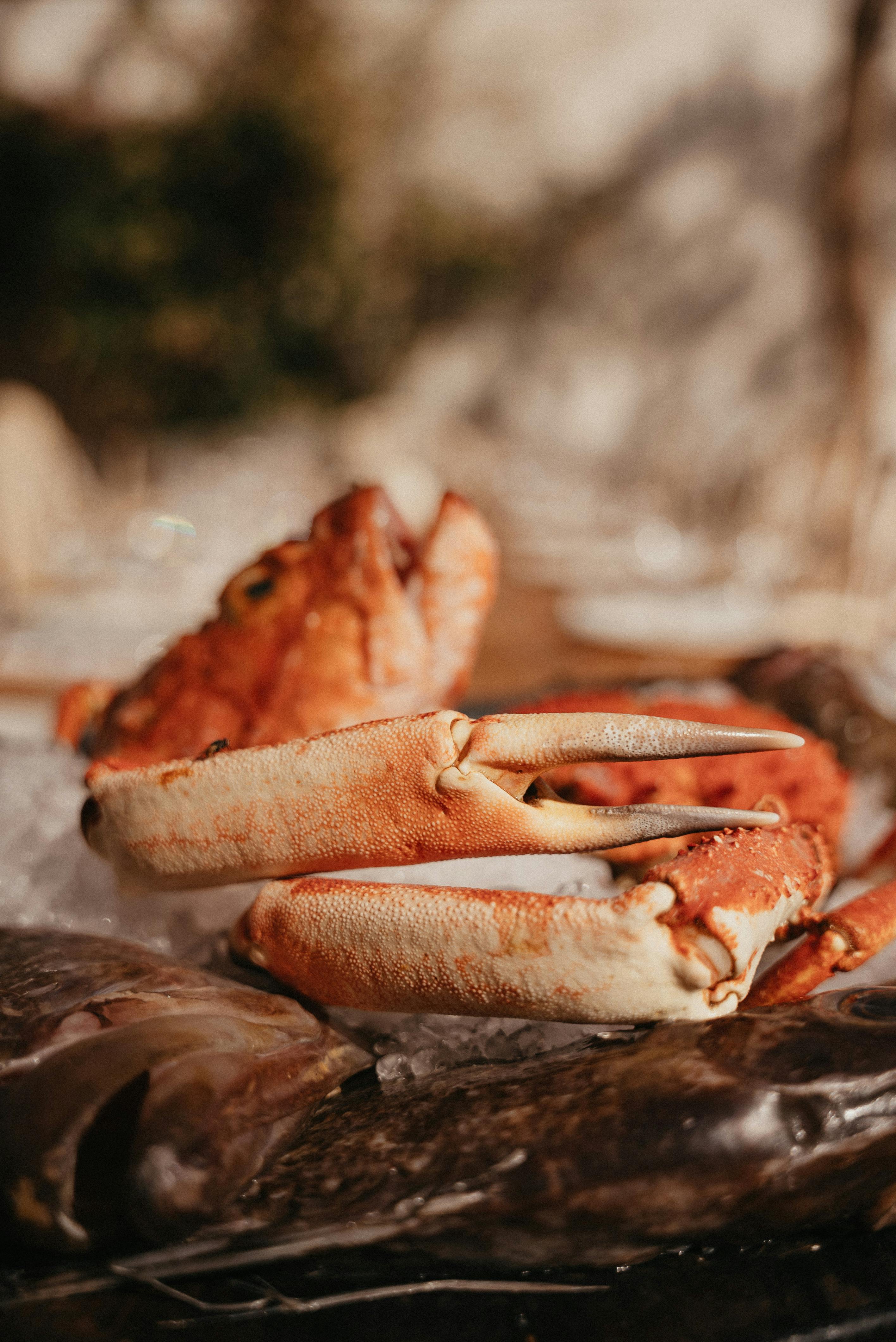Smart Ways to Improve Your Dog's Diet for Pancreatitis in 2025

Smart Ways to Improve Your Dog's Diet for Pancreatitis in 2025
Pancreatitis in dogs can be a serious condition that requires strict dietary management to promote recovery and maintain your pet's health. Understanding how to appropriately adjust your dog's diet is crucial for alleviating symptoms and preventing flare-ups. This article will explore various strategies for improving your dog's diet, focusing specifically on achieving low-fat nutrition while still providing essential nutrients. We’ll cover everything from the best food recommendations to feeding schedules and homemade meal options.
As we walk through the key components of a pancreatitis-friendly diet, you will learn about the importance of portion control, the role of hydration, and how to read dog food labels effectively. By the end, you’ll have a clear understanding of how to manage and prevent pancreatitis through dietary choices that enhance your dog's overall well-being.
Our roadmap is clear: we will tackle essential food types, explore vet-approved options, and provide insight into homemade recipes for dogs with pancreatitis. Let’s dive in and discover how you can optimize your dog’s diet for better health in 2025.
Understanding Pancreatitis and Dietary Needs
Before diving into dietary suggestions, it's essential to understand what pancreatitis is and how it affects your dog's health. Canine pancreatitis occurs when the pancreas becomes inflamed, leading to issues with digestion and absorption of nutrients. Symptoms to watch for include vomiting, abdominal pain, lethargy, and loss of appetite. The immediate focus for a dog diagnosed with pancreatitis is to provide relief through dietary adjustments to promote gastrointestinal health.
Signs of Pancreatitis in Dogs
Recognizing the signs of pancreatitis early can significantly impact treatment outcomes. Common symptoms include:
- Vomiting and diarrhea
- Abdominal pain or discomfort
- Loss of appetite or increased appetite
- Lethargy
- Dehydration
If you notice any of these symptoms, it's critical to consult your veterinarian promptly for a proper diagnosis and treatment plan. Understanding these signs helps you monitor your dog’s health effectively, which is especially vital during the dietary transition phase.
Role of Diet in Managing Pancreatitis
A low-fat diet is essential for dogs with pancreatitis, as reducing fat intake helps relieve the strain on the pancreas. Foods rich in high-quality proteins and carbohydrates can provide the nutrition your dog needs while minimizing the risk of triggering further pancreatitis episodes. Your dog's vet may recommend a specific pancreatitis dog diet tailored to suit your pet’s unique needs.
Maintaining a consistent feeding schedule is also important. Frequent, smaller meals can help in managing pancreatitis more effectively than one or two large meals, as it reduces the workload on the pancreas.
Consulting Your Veterinarian for Dietary Guidelines
Before making any significant changes to your dog’s diet, always consult with your veterinarian. They can provide specialized recommendations that consider your dog’s health history and current condition. A vet-approved diet is typically balanced with low-fat sources, ensuring that your dog receives adequate essential nutrients while avoiding potential diet-related complications. Your vet may also suggest specific vet-prescribed foods for pancreatitis that are formulated to manage this condition.
Best Food Options for Dogs with Pancreatitis
Choosing the right food for dogs with pancreatitis is crucial for recovery. The market offers several options that cater to dietary needs while prioritizing pancreatic health.
Low-Fat Commercial Dog Food
There are numerous commercial dog food brands that offer low-fat options, specifically formulated for dogs with pancreatitis. These options often include high-quality protein sources, necessary vitamins, and low-fat content to support pancreatitis management. Examples of good choices include:
- Prescription diets from trusted brands
- Vet-recommended low-fat kibble
- Wet food options that are easy to digest
Always ensure the food is labeled as suitable for dogs with sensitive stomachs and pancreatitis. Reading dog food labels carefully can help you make informed choices that support your dog’s health.
Homemade Dog Food for Pancreatitis
Cooking for your dog can be a rewarding way to provide a customized diet that meets their specific needs. When preparing homemade meals for dogs with pancreatitis, use low-fat proteins like skinless chicken or turkey combined with carbohydrates like rice or sweet potatoes. Avoid high-fat ingredients and consult your vet on safe spices and herbs that can enhance flavor without harming your dog’s health.
Simple Homemade Recipe for a Dog with Pancreatitis
Consider this simple recipe to get started:
- 1 cup cooked white rice
- 1/2 cup boiled, shredded chicken (skinless)
- 1/4 cup steamed carrots or pumpkin
Mix these ingredients well and serve in an appropriate portion size. Always monitor your dog’s response to homemade meals, adjusting recipes as needed based on their tolerance and any veterinary advice.
Nutrition Supplements for Dogs with Pancreatitis
In addition to a low-fat diet, you may consider integrating nutritional supplements that can help in managing pancreatitis. Pancreatic enzyme supplements assist in better digestion, while Omega-3 fatty acids can support overall health. Always consult your veterinarian before introducing any new supplements to your dog’s diet.
Feeding Strategies for Dogs with Pancreatitis
Implementing effective feeding strategies can facilitate better management of pancreatitis and promote healing. Your approach should emphasize moderation and frequency of meals, as well as being mindful of food choices.
Frequent Meals for Pancreatitis Management
Offering small, frequent meals is one of the best ways to support pancreatic function in dogs with pancreatitis. Instead of the traditional two meals a day, try feeding your dog three to four smaller meals throughout the day. This method helps to prevent large swings in blood sugar and reduces stress on the pancreas.
Understanding Portion Sizes
Portion control is another vital aspect of managing your dog’s diet. Since excess food can lead to pancreatitis flare-ups, measuring out your dog’s food and adhering to the recommended calorie intake based on their size, age, and health condition is crucial. Keeping a consistent feeding guideline ensures your dog receives the nutrition they need without overloading their pancreative system.
Hydration Tips for Dogs with Pancreatitis
Staying hydrated is crucial for dogs, particularly those dealing with pancreatitis. Make sure your dog has constant access to fresh water. You may even consider offering ice cubes as a low-calorie treat that can keep them hydrated while being gentle on their digestive system. Keep an eye on hydration levels, especially during hot weather or after meals.
Preventing Pancreatitis Flare-Ups
Preventing flare-ups of pancreatitis is essential to maintaining your dog’s health and ensuring longevity. Proactive dietary management can significantly reduce the risk of recurrent issues.
Recognizing Triggers for Pancreatitis
Understanding what can trigger pancreatitis in dogs is crucial for prevention. Foods high in fat, certain human foods, and abrupt changes in diet can all lead to complications. Stick to vet-recommended dog food, and introduce any new foods gradually to monitor your dog’s reaction.
Monitoring Weight and Body Condition
Tracking your dog's weight and body condition is fundamental in managing pancreatitis. Dogs with obesity are more prone to develop pancreatitis. Regular vet visits can help track your dog’s progress and make necessary adjustments to the diet as needed. Keeping your dog at a healthy weight is a vital element of care.
Customizable Diet Options for Your Dog
Every dog is unique, especially when it comes to specific dietary needs. By collaborating with your veterinarian, you can create a customizable diet plan tailored to address your dog’s pancreatitis while considering their likes and dislikes. It’s essential to account for individual symptoms, lifestyle, and any health concerns when designing a dietary approach. This personalized method not only addresses hydration and nutritional balance but also helps in managing the symptoms of pancreatitis effectively.
Frequently Asked Questions About Dog Diets and Pancreatitis
Transitioning your dog to a pancreatitis-friendly diet may prompt questions about diet and health implications. Here are a few common inquiries pet owners have regarding their furry friends:
1. Can pancreatitis in dogs be fully cured?
While many dogs can recover from an acute episode of pancreatitis, some may experience chronic issues that require ongoing management through diet and lifestyle modifications. Always consult your veterinarian for the best course of action.
2. What are the best food options for dogs with pancreatitis?
The best food options include low-fat commercial diets or homemade meals that are low in fat, high in quality proteins, and easy to digest. Consult your veterinarian for food recommendations tailored to your dog's specific needs.
3. How long does it take for a dog to recover from pancreatitis?
Recovery time from an acute pancreatitis episode can vary depending on the severity and the dog’s overall health. With proper dietary management and veterinary support, many dogs show improvement within a few days to weeks.
4. Are treats safe for dogs with pancreatitis?
Treats should be low-fat and carefully moderated to prevent triggering pancreatitis symptoms. Always check with your veterinarian before introducing new treats into your dog’s diet.
5. How can I help my dog transition to a new diet?
Introduce any new diet gradually over 7–10 days to minimize gastrointestinal upset. Monitor your dog’s response, and consult your veterinarian for further guidance.
Adhering to these guidelines will contribute to a healthier lifestyle for your dog while effectively managing their pancreatitis. By implementing thoughtful feeding strategies and diet management, you not only support your pet's overall health but also promote a happier, more energetic life.

